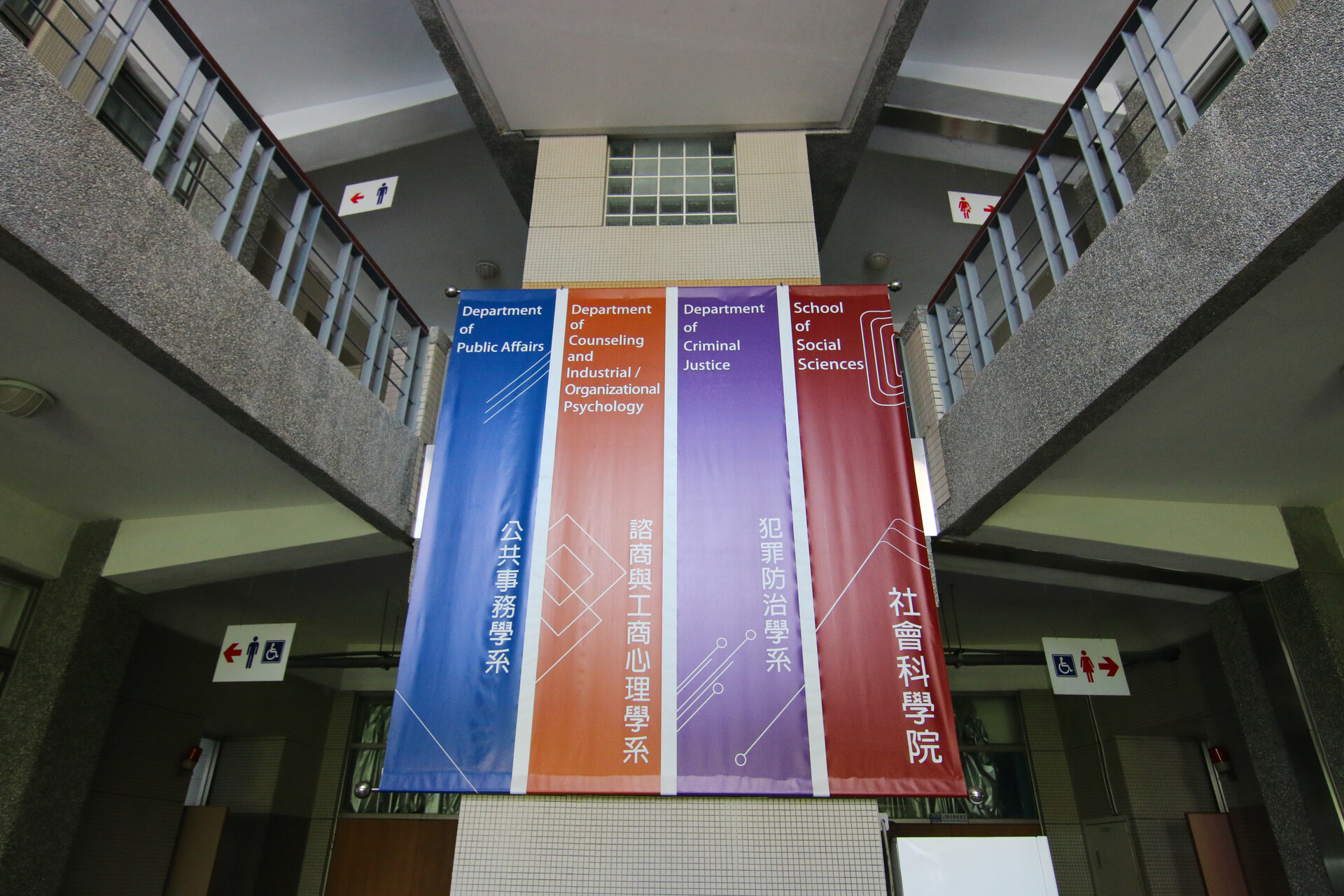
DEPARTMENT INTRODUCTION

- Chair of Criminal Justice Department:
CHANG, KUANG-MING Ph.D.
- CONTACT INFORMATION:
TEL:+886-3-350-7001 ext. 3776 (CHUANG,FU-TZU)
E-MAIL:s1113281@mail.mcu.edu.tw
CHANG, KUANG-MING Ph.D.
TEL:+886-3-350-7001 ext. 3776 (CHUANG,FU-TZU)
E-MAIL:s1113281@mail.mcu.edu.tw
- DEPARTMENT INTRODUCTION:

- Chair of Counseling and Industrial/Organizational Psychology Department:
HSU, CHIN-TIEN Ph.D.
- CONTACT INFORMATION:
TEL:+886-3-350-7001 ext. 3677 (YEH, HSIN-I)
E-MAIL:hsinyi@mail.mcu.edu.tw
HSU, CHIN-TIEN Ph.D.
TEL:+886-3-350-7001 ext. 3677 (YEH, HSIN-I)
E-MAIL:hsinyi@mail.mcu.edu.tw
- DEPARTMENT INTRODUCTION:

- Chair of Public Affairs and Administration Department:
WU, KUN-LU Ph.D.
- CONTACT INFORMATION:
TEL:+886-3-350-7001 ext. 3675 (HUANG, YU-NU)
E-MAIL:yunu@mail.mcu.edu.tw
WU, KUN-LU Ph.D.
TEL:+886-3-350-7001 ext. 3675 (HUANG, YU-NU)
E-MAIL:yunu@mail.mcu.edu.tw
- DEPARTMENT INTRODUCTION:
The Department of Public Affairs and Administration places equal emphasis on theory and practice, taking into account local concerns, cross-strait contexts, and a global perspective. The department aims to cultivate management talent with interdisciplinary integration and the ability to handle public issues.
The department provides students with rich and specialized learning resources, integrating the unique characteristics of the public sector, non-profit organizations, and entrepreneurship. It is supplemented by the application of administrative technology, project management capabilities, and the pursuit of excellent management strategies, enhancing the competitiveness of technological innovation and strengthening leadership and management professional skills.
